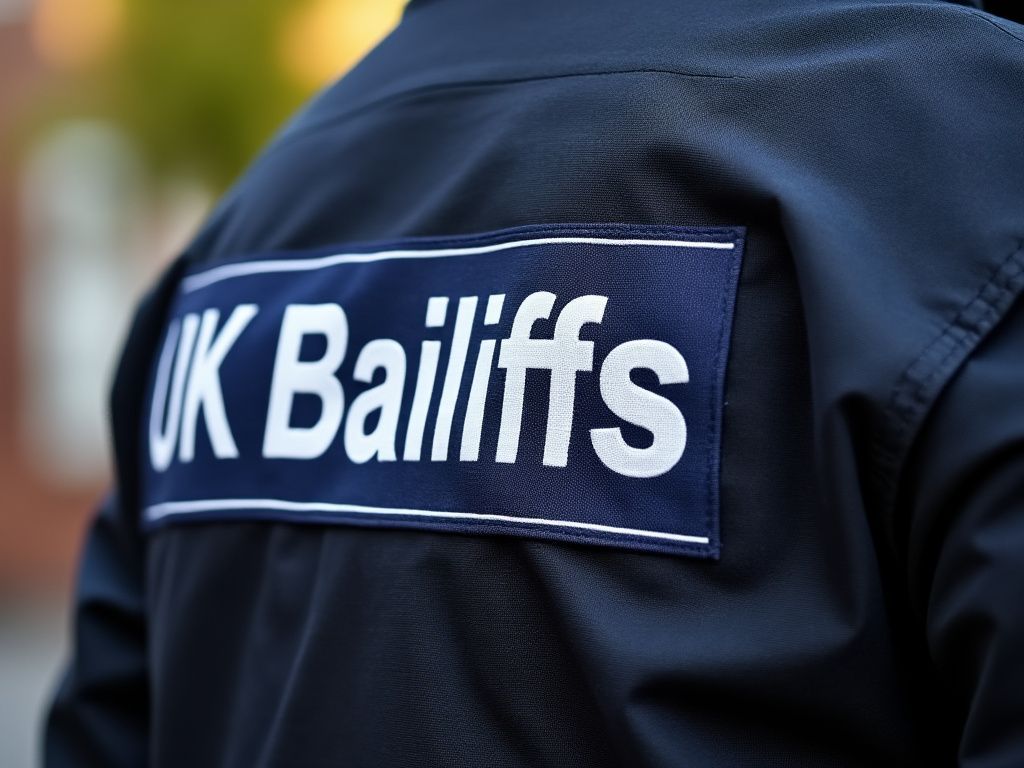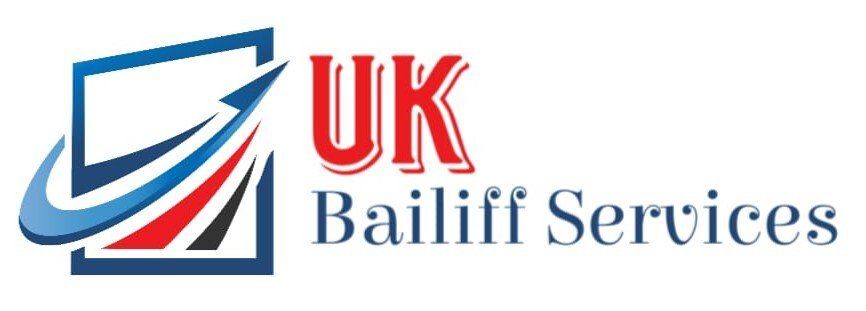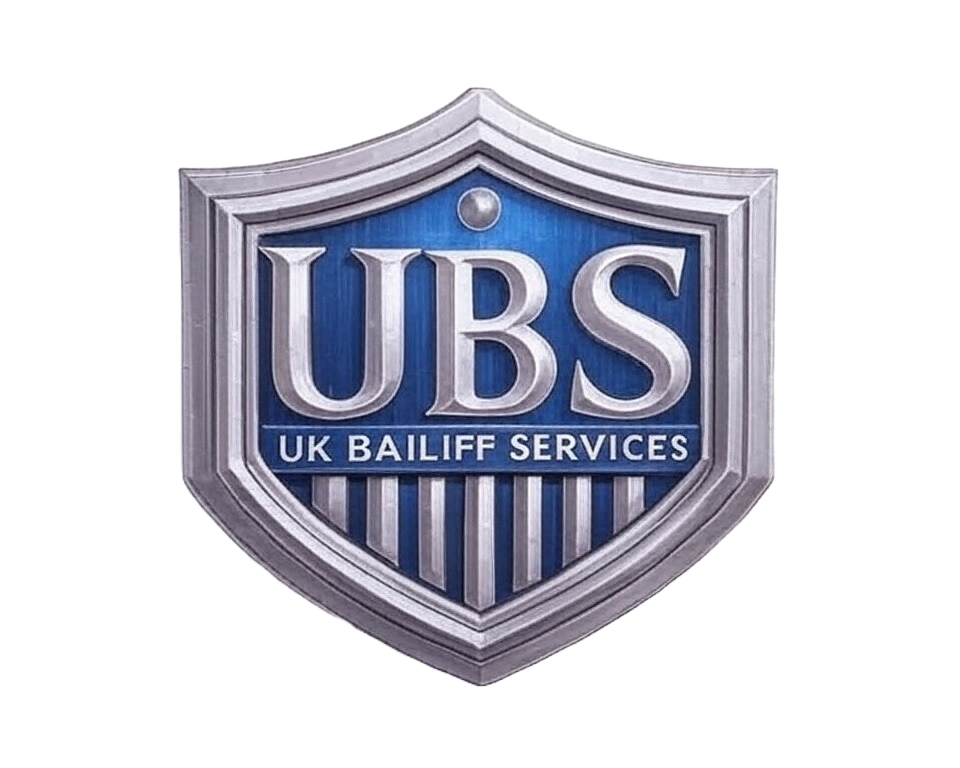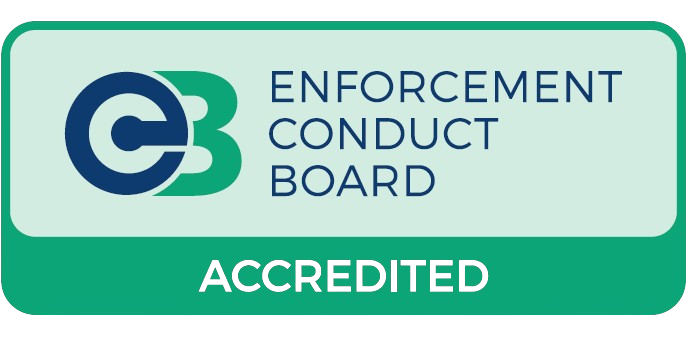UK Bailiffs Certificated Enforcement Agents
Court Certificated Bailiffs
Certificated Enforcement Agents specialising in Commercial Enforcement for UK Landlords and Property Managers

Enforcement Services
Specialist enforcement for landlords, letting agents, housing associations, and local authorities.
CRAR
Recover unpaid commercial rent without court proceedings.
Learn More → PropertyLease Forfeiture
Repossess commercial property after lease breaches.
Learn More → TrespassTraveller Evictions
Remove trespassers and encampments swiftly and lawfully.
Learn More → HousingExcluded Occupiers
Evict licensees or lodgers without going to court.
Learn More → LandAbandoned Vehicles
Identify and remove unwanted vehicles from private land.
Learn More → Animal WelfareGrazing Horse Removal
Serve notice and arrange removal of illegally grazed horses.
Learn More → TrespassRough Sleeper Evictions
Remove tents and individuals sleeping rough on private property.
Learn More → LegalProcess Serving
Nationwide delivery of legal documents with proof of service.
Learn More →Additional Services
K9 Security
Trained dog units for property protection and vacant site guarding.
Learn More → IntelligencePrivate Investigations
Surveillance, debtor tracing and discreet background investigations.
Learn More → FacilityLocksmiths & Shutters
Lockouts, boarding-up, shutter installs, eviction support, and more.
Learn More → SecuritySecurity Services
Guarding, site patrols, and emergency cover for commercial premises.
Learn More →Comprehensive Enforcement Services You Can Trust
With a steadfast commitment to integrity, reliability, and efficiency, we offer a wide range of enforcement services designed to meet your unique needs. Whether you require debt recovery, asset repossession, eviction services, or warrant execution, our customized solutions ensure your requirements are met with precision and care.
A Team of Certificated Enforcement Professionals
Our strength lies in our team of highly trained and certificated enforcement agents who bring extensive experience to the enforcement sector.
These skilled professionals have a deep understanding of enforcement proceedings and are dedicated to delivering results with the highest standards of professionalism.
Your In-House Enforcement Department
A Powerful Extension of Your Business
UK Bailiffs is more than a contractor—we operate as your dedicated Commercial Enforcement Department. Our mission is to protect your assets and enforce your legal rights with precision and professionalism.
Whether it’s recovering commercial rent arrears, evicting trespassers, or executing lease forfeiture, we integrate directly into your existing operations. Our certificated enforcement agents act discreetly and decisively, delivering trusted results when timing and legal accuracy matter most.

“By partnering with UK Bailiffs, you're not just hiring a service; you're adopting a strategic partner that aligns with your corporate values and objectives, ensuring that your commercial spaces are managed with the utmost legal integrity and efficiency.”
Our Professional Standards & Method
UK Bailiffs enforces with professionalism, compliance, and care. We’re accredited by the Enforcement Conduct Board and operate within a legal and ethical framework across all services.
📋 Method Statement – How We Work
Initial Assessment: We assess legal grounds and provide guidance on instruction.
Legal Compliance: Actions follow the TCE Act 2007, CRAR Regs 2013, and related law.
Operational Planning: Every case includes a tailored enforcement plan and safety checks.
Enforcement Action: Certificated agents attend, document, and act respectfully.
Post-Action Report: Clients receive a full report with outcomes and recommendations.

UK Bailiffs – Public Page Directory
Browse all public guides, services, tools and policies. Use search to quickly find what you need.
🧭 Core Enforcement Services 13 pages
⚖️ Legal Guides & Explanations 22 pages
🧮 Tools, Calculators & Charges 6 pages
🛡️ Policies, Terms & Governance 18 pages
🤝 Help, Guidance & Public Information 7 pages
📌 Specialist Pages & Other Information 5 pages
General FAQs
Your questions about our enforcement services, including CRAR and lease forfeitures, answered.
No results found. Try a different search term.
UK Bailiffs provides court-certificated enforcement services, including commercial rent arrears recovery, traveller and trespasser evictions, lease forfeitures, temporary housing evictions, property repossession, process serving, and private investigations.
CRAR is a legal process allowing landlords to recover unpaid commercial rent without court procedures, enforced quickly and efficiently by UK Bailiffs.
UK Bailiffs specializes in the lawful removal of travellers and trespassers from private and commercial land using UK Common Law and the Criminal Justice and Public Order Act 1994, ensuring minimal disruption.
UK Bailiffs complies with the Tribunals, Courts and Enforcement Act 2007, Taking Control of Goods Regulations 2013, Law of Property Act 1925, Protection from Eviction Act 1977, Control of Horses Act 2015, and Criminal Justice and Public Order Act 1994.
UK Bailiffs provides lease forfeiture services, including peaceable re-entry and securing the property, ensuring compliance with UK law for landlords to regain possession due to tenant breaches like non-payment of rent.
UK Bailiffs works with property managers, local authorities, and others to conduct lawful and empathetic evictions for temporary housing, minimizing disruption.
UK Bailiffs delivers legal documents like notices and court summons across the UK, ensuring compliance with legal requirements and providing sworn affidavits if needed.
UK Bailiffs serves legal notices, conducts microchip checks, and arranges removal of illegally grazing horses under the Control of Horses Act 2015.
The contact number for UK Bailiffs is 0330 133 1818.
The email address for UK Bailiffs is help@ukbailiffs.org.
UK Bailiffs offers matrimonial investigations, background checks, corporate investigations, surveillance, digital forensics, due diligence, and asset searches.
UK Bailiffs guarantees complete confidentiality throughout the private investigation process to maintain discretion.
UK Bailiffs adheres to all legal regulations and guidelines, ensuring evidence gathered is legally usable.
UK Bailiffs is located at 223 Bacup Road, Rossendale BB4 7PA.
UK Bailiffs assists landlords with property repossession and lock changes, ensuring properties are secured quickly and legally.
UK Bailiffs conducts a detailed case assessment, explains the process and legal requirements to clients, and develops a tailored enforcement plan based on case nature, risks, and client needs.
UK Bailiffs has been accredited by the Enforcement Conduct Board since December 2024.
Yes, UK Bailiffs handles commercial evictions, including lease forfeitures and commercial rent arrears recovery.
UK Bailiffs focuses on providing professional, discreet, and effective enforcement solutions for commercial clients, acting like an in-house enforcement department.
UK Bailiffs ensures legal compliance by adhering to relevant UK laws and preparing and serving legal notices per statutory requirements.
The Act is used to support the lawful removal of travellers and trespassers from private and commercial land.
Microchip checks are conducted to identify the owners of illegally grazing horses before their removal under the Control of Horses Act 2015.
UK Bailiffs supports landlords through services like CRAR, lease forfeitures, property repossession, and lock changes.
Yes, UK Bailiffs offers online booking for its services.
The Enforcement Conduct Board accredits enforcement agencies, and UK Bailiffs has been accredited since December 2024.
UK Bailiffs responds to client inquiries as soon as possible and provides detailed case explanations and potential outcomes.
UK Bailiffs serves legal notices, court summons, and other important documents with sworn affidavits if required.
Yes, UK Bailiffs offers fraud investigations as part of its private investigation services.
It is a UK law that UK Bailiffs complies with to regulate enforcement actions, such as taking control of goods.
UK Bailiffs employs skilled professionals with a deep understanding of enforcement proceedings, maintaining high standards of professionalism and integrity.
It is a UK law that UK Bailiffs follows for property-related enforcement actions, such as lease forfeitures and repossession.
Yes, UK Bailiffs collaborates with local authorities, property managers, police, and charities during temporary housing evictions.
It is a UK law that UK Bailiffs adheres to, ensuring lawful eviction processes to protect tenants’ rights.
UK Bailiffs considers potential risks when developing tailored enforcement plans to ensure safe and effective resolutions.
Digital forensics is part of UK Bailiffs’ private investigation services, involving the analysis of digital evidence for investigations.
Yes, UK Bailiffs offers child custody investigations as part of its private investigation services.
It is a UK regulation that governs how UK Bailiffs takes control of goods to recover debts.
UK Bailiffs maintains transparency by providing clients with full explanations of processes, legal requirements, and potential outcomes.
It is a UK law that UK Bailiffs uses to manage the removal of illegally grazing horses, including serving notices and conducting microchip checks.
Yes, UK Bailiffs provides services for residential evictions, including temporary housing evictions.
The register lists certificated enforcement agents, ensuring only 'fit and proper' individuals carry out enforcement actions.
Concerns about a bailiff’s conduct can be reported to the court listed in the Certificated Bailiff Register before the certificate hearing date.
UK Bailiffs develops tailored enforcement plans based on client requirements, ensuring effective and customized solutions.
Yes, UK Bailiffs offers surveillance as part of its private investigation services.
Sworn affidavits are provided by UK Bailiffs to confirm that legal documents have been served in compliance with legal requirements.
UK Bailiffs acts as an in-house commercial enforcement department, seamlessly integrating with clients’ management structures for discreet solutions.
The accreditation, held by UK Bailiffs since December 2024, signifies adherence to high standards of conduct and professionalism.
Yes, UK Bailiffs offers bug sweeps as part of its private investigation services to detect surveillance devices.
If an error occurs when contacting UK Bailiffs, try again later or call 0330 133 1818 for assistance.
The rent arrears must be at least seven days’ worth of rent at the time the notice is served and at the time of enforcement.
Only certificated enforcement agents, such as those employed by UK Bailiffs, can carry out the CRAR process, not the landlord themselves.
No, CRAR applies only to purely commercial premises with a written lease; it cannot be used for residential or mixed-use properties.
CRAR can only be used to recover principal rent, interest, and VAT, not other payments like service charges or insurance.
A landlord must provide a minimum of seven days’ notice of enforcement to the tenant before goods can be seized.
No, enforcement agents can only enter through an open or unlocked door; forced entry is not permitted under CRAR.
If the tenant pays the arrears in full, including any fees, before the notice period expires, the CRAR process is halted.
No, CRAR cannot be used if the lease has ended; it only applies to active commercial leases.
A Warrant of Control is a form filled out by the landlord to authorize an enforcement agent to begin the CRAR process.
Yes, a landlord can apply to the court to shorten the seven-day notice period if they believe the tenant may remove goods.
The compliance stage involves sending a seven-day enforcement notice to the tenant, detailing the arrears and offering a chance to pay.
If the arrears remain unpaid after the notice period, an enforcement agent seizes the tenant’s goods on the commercial premises.
In the disposal stage, the enforcement agent sells the seized goods at public auction to recover the rent arrears.
No, CRAR is limited to recovering rent, interest, and VAT; other debts require alternative recovery methods.
CRAR is governed by the Tribunals, Courts and Enforcement Act 2007 and the Taking Control of Goods Regulations 2013.
Yes, landlords can require sub-tenants to pay rent directly to clear arrears, with a 14-day notice period.
Yes, anti-avoidance provisions prevent landlords from using alternative methods to bypass CRAR, which could be deemed void or criminal.
CRAR may be restricted if the tenant is in insolvency proceedings, depending on the terms of the lease or deposit deed.
Goods are bound to the property, meaning they cannot be sold or removed by the tenant until the arrears are paid.
Tenants may apply to a court for relief from forfeiture if the landlord re-enters the premises, potentially reinstating the lease if arrears are paid.
Commercial lease forfeiture is a legal process where a landlord terminates a lease early due to a tenant's breach of lease terms, such as non-payment of rent or unauthorized alterations, often requiring a Section 146 notice for breaches other than rent.
A Section 146 notice is a formal notice served by a landlord to a tenant, specifying a breach of lease covenant (other than non-payment of rent), requiring remedy if possible, and demanding compensation, as per the Law of Property Act 1925.
A Section 146 notice is required for breaches of lease covenants other than non-payment of rent, such as unauthorized subletting or property damage, before a landlord can proceed with forfeiture.
No, a landlord can only forfeit a lease if the lease contains an express forfeiture clause or proviso for re-entry, specifying the conditions for termination.
A Section 146 notice must specify the breach, require the tenant to remedy it if possible, demand compensation, and allow a reasonable time for compliance.
A reasonable time varies by case but is typically weeks; case law suggests two days is insufficient, while five days may suffice for non-remediable breaches.
Yes, a tenant can apply to the court for relief from forfeiture within six months, which may be granted if arrears are paid or breaches are remedied.
Accepting rent after a breach may waive the landlord’s right to forfeit, as it suggests the lease is ongoing, unless the rent is 'parked' as unpaid.
For leases of seven years or more with at least three years remaining, this Act requires a Section 146 notice for repair breaches and allows tenants to serve a counter-notice within 28 days, needing court consent for forfeiture.
Yes, if the lease includes a forfeiture clause for insolvency, the landlord can forfeit, but a Section 146 notice may be required depending on the lease terms.
Improper forfeiture, such as failing to serve a valid Section 146 notice or using force, can lead to claims for unlawful eviction or damages for trespass.
UK Bailiffs can draft and serve Section 146 notices, conduct peaceable re-entry, secure the property, and provide documentation for legal compliance.
If a tenant does not remedy the breach after a Section 146 notice, the landlord can apply to the County Court or High Court for a possession order to forfeit the lease.
Yes, a sub-tenant or mortgagee can apply for relief from forfeiture to protect their interest, potentially vesting the lease in their name under court conditions.
Key laws include the Law of Property Act 1925, Protection from Eviction Act 1977, and, for rent-related issues, the Commercial Rent (Coronavirus) Act 2022.
Yes, after forfeiture, a landlord can pursue a separate claim for damages, such as unpaid rent or costs of repairing breaches, typically in the County Court.
Goods left after forfeiture are covered by the Torts (Interference with Goods) Act 1977; the landlord, as an involuntary bailee, must not dispose of them without legal advice to avoid liability.
Yes, a landlord can use CRAR to recover arrears and pursue forfeiture for lease breaches, but each process has distinct legal requirements and must be followed correctly.
A certificated enforcement agent, like those at UK Bailiffs, is authorized to seize and sell goods under CRAR, ensuring compliance with the Tribunals, Courts and Enforcement Act 2007.
No, CRAR does not allow re-entry to terminate the lease; it only permits seizure of goods for rent arrears, while forfeiture is needed to end the lease.
The Act restricts CRAR for rent arrears accrued during COVID-19 closures, requiring arbitration for protected periods, though UK Bailiffs can assist with eligible arrears.
UK Bailiffs conducts swift CRAR enforcement by assessing cases, serving notices, and seizing goods within legal timeframes, minimizing delays for landlords.
A schedule of dilapidations, served with a Section 146 notice, details repair breaches, helping tenants understand and remedy issues to avoid forfeiture.
Yes, if the lease includes a forfeiture clause for late payments, a landlord can forfeit, but a Section 146 notice may be required for non-rent breaches.
UK Bailiffs secures properties after forfeiture by changing locks during peaceable re-entry, ensuring the landlord regains control legally and safely.
CRAR replaced the common law remedy of distress for rent in 2014, introducing stricter rules like mandatory notices and certificated agents, as used by UK Bailiffs.
Yes, reasonable enforcement fees and costs can be recovered under CRAR, as outlined in the Taking Control of Goods (Fees) Regulations 2014, and UK Bailiffs includes these in the process.





